Fennel in herbal medicine and aromatherapy
Fennel - an effective natural remedy

Fennel (Feoniculum vulgare or officinale) tea increases milk flow in nursing mothers, which keeps babies happy and healthy.
As a medicinal herb, the seeds, bulbs, and stems of fennel are most often used to aid digestion, get rid of gas, stop stomach cramps, regulate appetite, fight infection, and to increase the flow of milk in nursing mothers.
The active ingredients in fennel help sooth and protect the small and large intestines. The beneficial properties actually pass through breast milk, reducing infant colic.
Read more about how herbs protect and heal the colon.
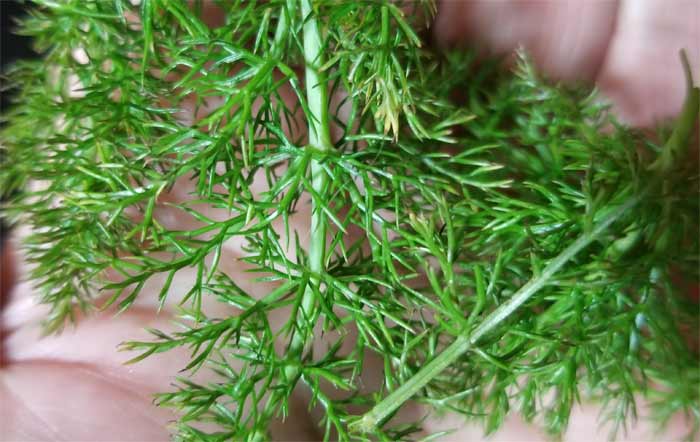
Fennel for everyone
All parts of the fennel plant, including the seeds, bulbs, and stems, are used in herbal medicine.
Fennel seeds help indigestion and fennel root tea helps gout. Fennel seeds are good for colic, indigestion, irritable bowel syndrome, and coughs due to colds. Fennel is also used to treat gum disease, loose teeth, laryngitis, anorexia, and sore throats.
Fennel root decoctions (strong teas) are effective in preventing kidney stones and reducing high uric acid content which makes it good for fighting gout naturally.
Fennel is a mild diuretic that helps reduce swelling. It also increases bile production, reduces pain, and cools a fever.
Fennel can relieve everything from anxiety to ulcers.
According to the the US National Library of Medicine, fennel is useful for treating cognitive disorders like dementia and Alzheimer's disease that come with aging.
Studies show that fennel is an important medicinal plant, especially for abdominal pains, arthritis pain, colic in children, conjunctivitis, diarrhea, fever, flatulence, gastritis, insomnia, irritable colon, kidney ailments, constipation, liver problems, mouth ulcers, and stomach aches.
This plant has been in use for a long period of time without any documented serious adverse effects.
Fennel can also help calm the mind and alleviate anxiety and panic attacks. In the plant kingdom, fennel is a medicinal herb worth writing home about.
Fennel has a delicious, distinctive taste.
Fennel tastes like anise, which is used in licorice candy. It is a well known culinary herb.
Fennel is used to flavor pickles, candies, breads, and liqueurs. It is a perfect seasoning for fish and the bulbs make a delicious raw or cooked vegetable.
Fennel seed tea is easy to make.
Fennel seed tea is easy to make. Just crush or grind a tablespoon of the seeds, then simmer them in two cups of water for five to ten minutes. Keep the pot covered. Cool, strain, and drink a portion three times a day.
Fennel has a long history.
Fennel is originally from Europe and has been cultivated in Asia and Egypt for thousands of years. In medieval times people chewed fennel seeds to subdue growling stomachs and sweeten the breath.
Fennel infusions were used to tighten wrinkled skin and to bathe tired eyes. Fennel was also used to strengthen eyesight, for snakebites, for colic, and to get rid of fleas. Both the plant and seeds were dried, powdered, and sprinkled on stubborn wounds.
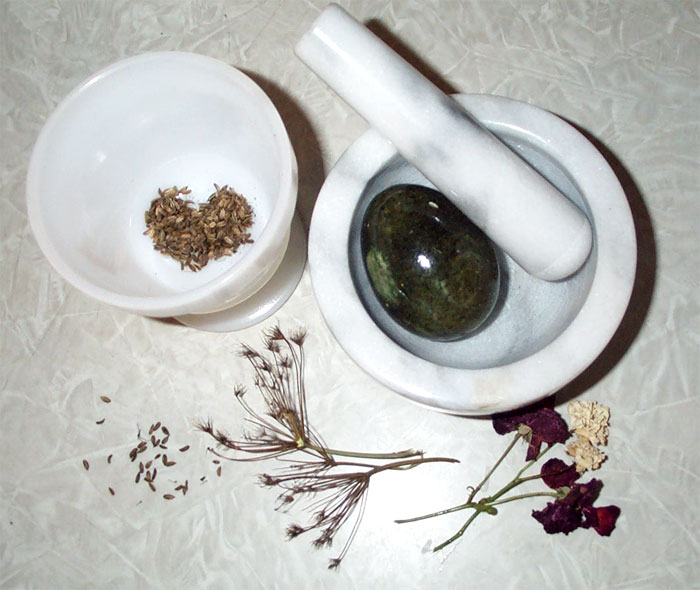
How to easily prepare fennel seed tea for bottle fed babies
Fennel seed tea is a great home remedy for colicky babies. When the mother drinks fennel seed herbal tea, the healing properties get into the baby's stomach via the breast milk.
But what if your baby is bottle fed? This short video shows how to prepare fennel seed tea for bottle fed babies.
Fennel and weight loss
Fennel has been used to treat obesity for centuries. Fennel seed has mild diuretic properties that can help reduce swelling and edema.
Fennel is also an appetite suppressant and helps stop cravings for sweets.
Chew fennel seeds or put a drop of fennel oil under your tongue before reaching for a candy bar. Fennel's ability to reduce sugar cravings make the herb ideal for use with diabetic patients.
Fennel and digestion
Anyone eating fast food or highly processed foods on a regular basis should consume lots of fennel to help protect against inflammation in the digestive tract. Drink fennel tea, eat the seeds, use the herb in tinctures, and add the bulb to your diet.
Fennel is more than a useful medicinal herb. It is also a delicious vegetable that makes a interesting addition to salads and stir-fries.
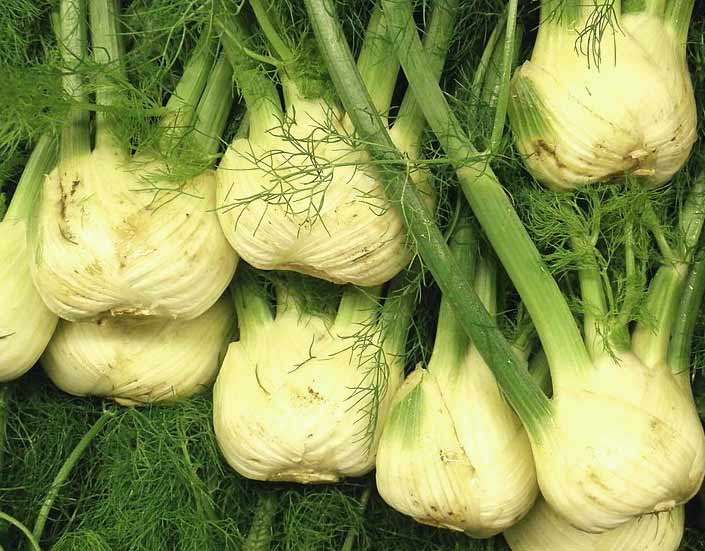
Using fennel seeds and bulbs in the kitchen
These tasty seeds can be chewed or added to food. I like to eat about 5 at a time to sweeten my breath and relieve indigestion.
The bulbous stems are used like celery. Eat raw, cooked, in sauces, in soups, and in stews. Fennel leaves are good with fish and make a fine sauce for pork chops.
Fennel sauce recipe:
To make an easy fresh fennel sauce, add 5 tablespoons of chopped fennel leaves to 1 cup cream, lightly whipped. Stir in 2 tablespoons of fresh lemon juice and add salt and pepper to taste. Heat slowly and use like gravy on pork chops for a delicious main course.
Fennel plants in the garden
Fennel is a perennial that does well here in North Georgia. One planting will last for several years if not dug for the roots.
The plant reaches 3-7 feet tall and resembles a feathery fern or dill weed. The bright green stems produce flat clusters of golden flowers.
Sow seeds directly into the garden or start in pots. Grow in full sun and light, well-drained soil. Harvest the leaves thorough out the growing season. Harvest seeds when ripe in fall.
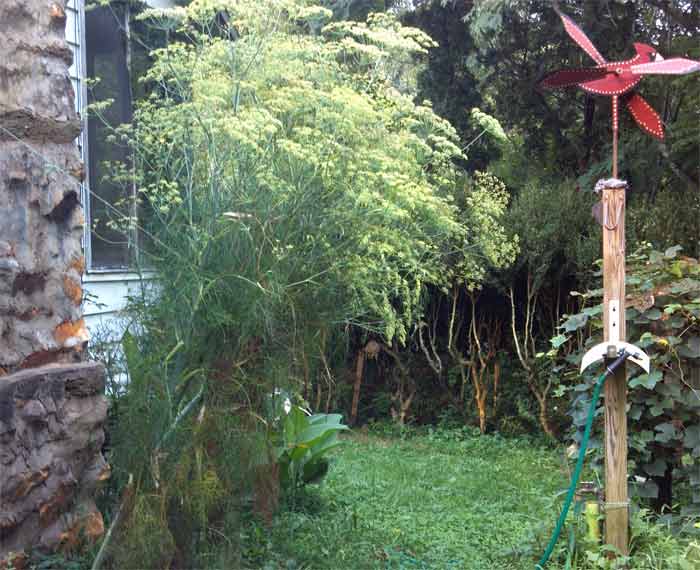
Two types of fennel
One type of fennel is grown for it's large, tasty seeds (herb fennel – Foeniculum vulgare). Another type of fennel is grown for its bulbous root which is used as a vegetable like celery or artichoke (Florence fennel or Finocchio – Foeniculum vulgare var. dulce).
Both types of fennel are grown from seed. Both prefer full sun and soil that is rich with organic matter. Fennel prefers moist soil to develop the best “bulb.” It does not transplant well due to its long tap root.
Fennel on Payne Mountain Farms
We like to keep fennel growing on the farm because it is so useful. I plant the seeds in spring and we have sprigs for salads and seasoning around June. The tender sprigs are great on baked fish.
The bulb types of fennel don't seem to grow as well around here so we usually buy those in the produce section of the grocery store. We are able to harvest a crop of seeds in the fall of most years.
I like to sprinkle fennel seed on pizza and of course, they are delicious in sausage. I also take them by the teaspoonful for indigestion.
Our dog loves fennel seeds. We give him a spoonful whenever he has gas. These tasty little seeds can work wonders for that problem.
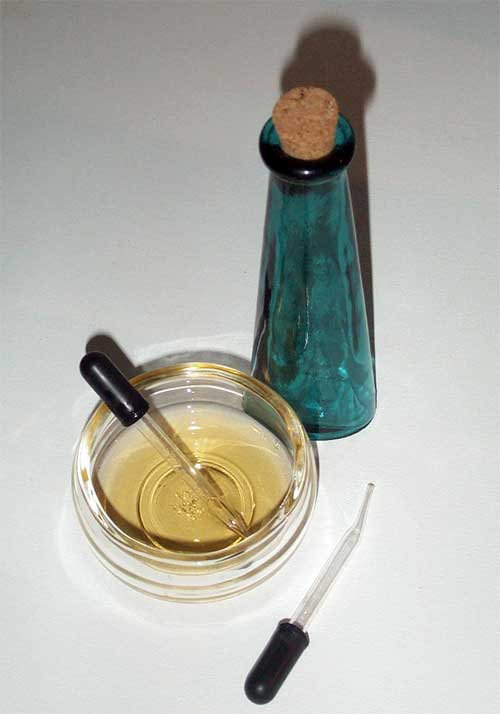
Fennel essential oil
Fennel essential oil, distilled from fennel seeds, is used in aromatherapy and other natural remedies. Fennel oil is used to treat various liver, kidney, and spleen conditions. It eases indigestion, flatulence, the hiccups, nausea, vomiting, hangover, and diarrhea.
Just like the plant, the oil contains natural estrogen-like substances that regulate menstrual periods and stimulate milk flow. Fennel essential oil is sometimes used as a weight loss aid due to its diuretic properties. It can also ease sugar cravings, just put one drop under your tongue to curb appetite for sweets.
Using fennel essential oil in chest rubs
Fennel is rich in volatile oils that have estrogen like qualities. These oils calm smooth muscle spasms.
Fennel essential oil is often added to chest rubs along with thyme essential oil, eucalyptus essential oil, and almond oil. This rub is an effective treatment for coughs. Rub on the throat, chest, and back using gentle circular motions several time a day for best results.
Fennel essential oil is spicy.
Fennel essential oil is spicy with a scent usually associated with anise or licorice. The oil is extracted from fennel seed by steam distillation. It is a great addition to toothpaste. Just put one drop on your toothpaste before brushing for a clean and healthy mouth.
Fennel essential oil helps the skin.
Fennel essential oil is beneficial for dull, oily, or wrinkled skin and helps heal bruising.
Add a few drops of fennel essential oil to a tablespoon of almond oil for a great facial moisturizer. You can also add it to creams and lotions.
Fennel essential oil helps detox the body.
Fennel oil can calm the central nervous system and helps detoxify the body after overindulging in food or alcohol. Use in a diffuser or put a few drops on a wet cloth and inhale the aroma while relaxing in a dimly lit room.
Fennel essential oil has many uses.
When inhaled, fennel essential oil relieves asthma and nasal congestion. Fennel oil is sometimes used to clean poison from insect and snake bites. It is used in aromatherapy to encourage strength, courage, and higher self esteem.
Fennel essential oil blends well with geranium, lavender, rose, and sandalwood.
Fennel essential oil is made from the fennel seeds by steam distillation. It is a popular addition to soaps, candles, and perfumes.
*Do not use fennel tincture or capsules for more than six weeks. Avoid fennel during pregnancy. Do not use high doses of fennel essential oil. In cases of estrogen dependent cancers it is probably best not to use it at all.
Do not take essential oils internally unless advised to do so by a healthcare professional. Always dilute essential oils with good carrier oil (such as almond or olive) and test on small area of skin before use. Always consult with a healthcare professional before using any herbal remedy especially if pregnant, nursing, or taking other medicines.
Sources:
https://www.ncbi.nlm.nih.gov/pmc/articles/PMC4137549/
Blessings to you and yours!
Thanks so much for reading my blog. Jan.

*Note - the information on this website has not been evaluated by the Food and Drug Administration.
© 2005-2024 website design and content by Janice Boling